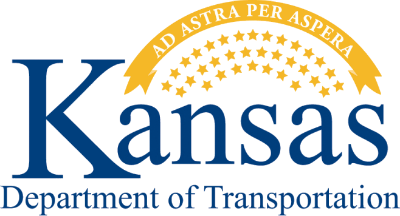Kansas Department of Transportation


The Kansas Department of Transportation’s (KDOT) vision is to be the best in everything they do. This vision is no easy task for an organisation that is responsible for 140,000 miles of public roads.
Challenge
KDOT had a need to validate, clean and enhance their road centrelines for migration into Esri Roads and Highways. To streamline and consolidate the management of their road centreline data, they migrated their existing LRS onto the State’s NextGen 911 network.
The conflation effort introduced numerous issues and put KDOT in a time crunch to validate and clean the road network within the required 2-month deadline.• Leverage the NextGen 911 network for their LRS Route Network
- Streamline their data management processes in order migrate their data into Esri’s Roads & Highways
- Use the Local Roads from the 911 Network to meet the All Road Network of Linear Referenced Data (ARNOLD) requirements
- Complete the effort in time to meet the HPMS submission deadline
Solution
KDOT contracted with 1Spatial Inc. to implement 1Spatial’s 1Integrate Commercial Off The Shelf (COTS) software to automate the validation and clean-up of their data to meet the tight HPMS submission deadline. 1Integrate is a rules engine software utilised by subject matter experts, like the KDOT team, to configure and run validation rules based on business requirements to identify inconsistencies within the organisations data. 1Spatial Inc. provided training and workshops to enable KDOT to utilise the system, determine what types of validations needed to be configured, and once anomalies were found, how the engine should automatically fix those issues within specified tolerances. 1Spatial Inc. also provided consultancy to assist in the rule authoring process of the more complex rules identified within workshops as well as provided peer review of the rules developed by the KDOT team.
The 1Integrate rules enabled KDOT to quickly identify the exact locations of data issues and automate their correction. Automated clean-up tasks included edge matching between county boundaries, correcting mileage accumulation versus digitisation (maintaining attribute dependencies), in addition to many other network cleansing tasks.
“This project included many aspects that I thought were impossible, until I learned of 1Spatial and got help from their experts”
– Kyle Gonterwitz, KDOT GIS Manager
Result
Contracting with 1Spatial data management experts and leveraging the 1Integrate rules engine, KDOT was able to complete their project early and within budget, despite having 140,000 miles of public roads and 387,000 unique route geometries. 1Integrate validated KDOT’s entire dataset against 45 validation rules including geometric checks (spikes, kickbacks, overshoots, undershoots, etc), attribution checks, as well as combination geometric/attribution checks in less than three hours. In fact, Kyle Gonterwitz of KDOT, said this project included many aspects that “I thought were impossible, until I learned 1Spatial and got help from their experts.”
The now automated process ensures data integrity in a much more efficient and non-subjective manner, as opposed to the manual, SQL query and python code processes used previously. Having 1Integrate in-house allows KDOT to iterate this process on their own, mitigating the need to contract out to third party providers when data validation is needed.
Further, KDOT can now utilise the rules engine to validate other databases (spatial and/or non-spatial), ensuring that all data throughout the enterprise is in sync.
Kansas Department of Transport
“This project included many aspects that I thought were impossible, until I learned of 1Spatial and got help from their experts””
KDOT, GIS ManagerBenefits
1Spatial Inc. provided the necessary commercial off the shelf (COTS) software and licenses to enable KDOT’s experts to create data validation, clean-up, and enhancement rules against all centreline related datasets (routes, events, local and state centrelines, etc.). Some key benefits realized by KDOT utilizing the 1Integrate rules engine include:
- A much more efficient and streamlined process for ingesting data updates by utilising the existing rules to validate and cleanse data, making the task repeatable with little additional effort
- Simpler rule development that is easier to maintain and does not require developer skills
- More precise validation creating better understanding of why the non-conformances occur
- Can process their entire network, including all 387,000 features against complex validation checks in a short amount of time
- Ability to pinpoint exact locations of any non-conforming features, streamlining any required manual correction tasks
- ROI: KDOT initially anticipated this project to take six to eight months, but after engaging with 1Spatial Inc. were able to complete the project in less than two months and under the budget they anticipated
Future
1Spatial Inc. is now preparing to work with KDOT to conflate NextGen 911 information onto the KDOT new LRS network. Using the 1Spatial solution with 1integrate to perform the conflation has the benefit of being a rules-based-approach using a high performance application that provides precise feedback. This empowers KDOT to automate over 90% of the conflation effort and quickly identify any problematic locations for manual review.
eNewsletter
Stay up to date with all the latest 1Spatial news and events through our eNewsletter.
eNewsletter
